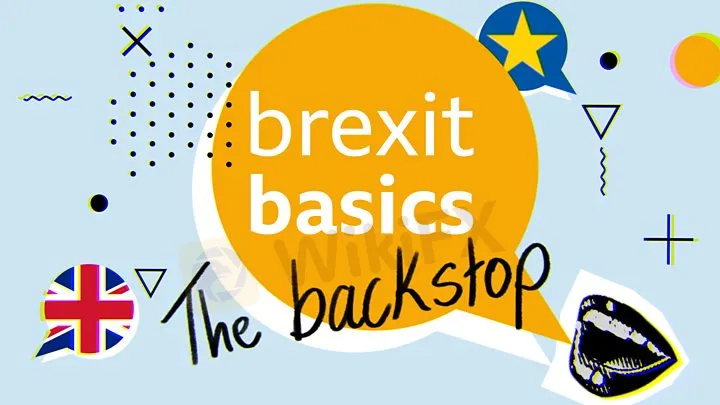简体中文
繁體中文
English
Pусский
日本語
ภาษาไทย
Tiếng Việt
Bahasa Indonesia
Español
हिन्दी
Filippiiniläinen
Français
Deutsch
Português
Türkçe
한국어
العربية
Brexit: UK urged to table 'acceptable' backstop remedies
Abstract:Image copyrightReutersImage caption Brexit Secretary Stephen Barclay and Attorney General Geoffrey
Image copyrightReutersImage captio
Brexit Secretary Stephen Barclay and Attorney General Geoffrey Cox are reported to have made little progress in Brussel
The UK has been urged to table fresh proposals within the next 48 hours to break the Brexit impasse.
EU officials said they would work non-stop over the weekend if “acceptable” ideas were received by Friday to break the deadlock over the Irish backstop.
The UK has said “reasonable” proposals to satisfy MPs' concerns about being tied to EU rules had already been made.
There have been few visible signs of progress ahead of Parliament's second vote on the Brexit deal next Tuesday.
MPs emphatically rejected the terms of withdrawal negotiated by Theresa May in January.
If they do so again, they will get to choose between leaving without a deal or deferring the UK's exit date from the EU beyond the scheduled 29 March.
Live: Lords debate Trade Bill
No breakthrough in Brexit talks, says EU
Brexit: A really simple guide
The PM is seeking legally-enforceable changes to the backstop - an insurance policy designed to prevent physical checks on the border between Northern Ireland and the Republic of Ireland.
Arbitration plan founder
By BBC's Brussels reporter Adam Fleming
The latest talks aimed at securing legal guarantees about the Irish backstop foundered over a British proposal for the role of the independent arbitration panel which will be set up under the Brexit deal.
It will be made up of judges and lawyers, and will handle disputes between the UK and the EU about the withdrawal agreement.
The British suggested it have a role in deciding whether the backstop should come to an end - if it's ever needed.
But the EU felt that went beyond the panel's remit, which is to ensure each side sticks to the rules - not to make big decisions like the future of the Irish border.
Hence the request for the UK to think again. And quickly.
Mrs May is pinning her hopes on getting changes to it that will prevent the UK from being tied to EU customs rules if no permanent trade deal is agreed after Brexit.
Critics say that - if the backstop were used - it would keep the UK tied to the EU indefinitely.
Negotiations between British ministers and the EU officials over the past 24 hours have been described as “difficult”, with the EU insisting there has been no breakthrough.
Diplomats from the 28 member states were told on Wednesday that Mrs May could meet European Commission President Jean-Claude Juncker on Monday if progress was made.

Media playback is unsupported on your device
Media captionConfused by Brexit jargon? Reality Check unpacks the basics.
But the BBC's Europe reporter Adam Fleming said talk of a 48-hour deadline for new proposals and a weekend of negotiations was “a notional timetable” and that more flexibility could be possible.
Attorney General Geoffrey Cox, who is leading the UK team, has conceded that negotiations are at a sensitive point and the exchanges have been “robust”.
Mr Cox, who will take questions from MPs on Thursday, has played down reports he has abandoned hopes of getting the EU to agree to a firm end date to the backstop or some kind of exit mechanism - key demands for many Tory Brexiteers.
Please upgrade your browser
Your guide to Brexit jargo
Use the list below or select a butto
The government has suffered the first of what are expected to be a number of defeats in the Lords on a key piece of post-Brexit legislation.
Peers voted to amend the Trade Bill to call on the government to join a new customs union with the EU after Brexit.
The result means MPs now will get a vote on whether to stay in the existing customs union when the legislation returns to the Commons.
Ministers also lost a vote obliging them to get Parliament's approval for its negotiating strategy ahead of the next phase of talks on future relations with the EU.
Meanwhile, Labour leader Jeremy Corbyn has met Conservative MPs who back a close, Norway-style relationship with the EU after Brexit.
He discussed the idea of a “Common Market 2.0” trade-focused model with former ministers Nick Boles and Sir Oliver Letwin.
Mr Boles said the goal was to reach a cross-party compromise to ensure the UK left the EU but in a manner which protected its economic interests.
Skip Twitter post by @NickBole
Oliver Letwin and I were happy to join @LucyMPowell and @SKinnock in this meeting with Jeremy Corbyn to discuss our Common Market 2.0 proposal. For months now we have been meeting with senior MPs from all parties in search of a cross party Brexit compromise. https://t.co/dNKpLbEQXR
— Nick Boles MP (@NickBoles) March 6, 2019
Report
End of Twitter post by @NickBole
Disclaimer:
The views in this article only represent the author's personal views, and do not constitute investment advice on this platform. This platform does not guarantee the accuracy, completeness and timeliness of the information in the article, and will not be liable for any loss caused by the use of or reliance on the information in the article.
WikiFX Broker
Latest News
ASIC Sues Binance Australia Derivatives for Misclassifying Retail Clients
AIMS Broker Review
The Hidden Checklist: Five Unconventional Steps to Vet Your Broker
WikiFX Review: Is FxPro Reliable?
Malaysian-Thai Fraud Syndicate Dismantled, Millions in Losses Reported
Trading frauds topped the list of scams in India- Report Reveals
YAMARKETS' Jingle Bells Christmas Offer!
Doo Financial Expands Regulatory Reach with Offshore Licenses in BVI and Cayman Islands
Why is there so much exposure against PrimeX Capital?
Russia to Fully Ban Crypto Mining in 10 Regions Starting January 1, 2025
Currency Calculator


